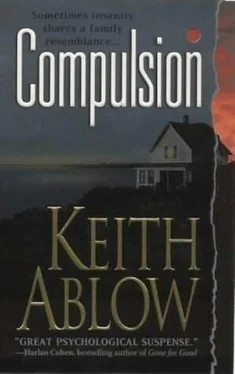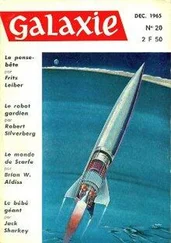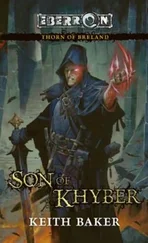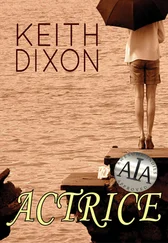While we were in flight, Anderson radioed the New York City Police Department to arrange a computer transfer of Bishop's fingerprints, first logged when he was arrested during 1980 for the restraining order violation. We didn't expect Darwin to deny handling the prescription bottle, but we didn't want to take any chances with documentation; evidence can disappear at the worst possible moments, especially evidence against an influential suspect.
Billy's prints had been stored by the U.S. Department of Immigration and were already part of the investigation file. Anderson was carrying a set with him.
We met with Art Fields, director of the crime lab, who agreed to let Anderson and me watch the testing. Fields is a short, bulky man of about sixty, with bushy black eyebrows and a permanent mischievous smile that looks as if he's just heard a witty, off-color anecdote. "What are we looking for?" he asked Anderson.
"The main question is whether Billy Bishop's prints are on the bottle," Anderson said. "If not, then one big piece of evidence points away from him as a suspect."
"Is this kid slow, or something?" Fields said. "Mentally, I mean."
"No," I said. "He's extremely bright."
"He couldn't think to wear gloves?" Fields asked.
"Of course he could," Anderson said, "but his prints are all over the crime scene: the window and window frame he boosted himself through, the twins' room and cribs, even the antique desk he stole five grand out of. He left a note, too. It starts to stretch the imagination to think that his only effort to avoid detection would be slipping on a pair of gloves when he poisoned the baby."
"I don't think it would stretch Captain O'Donnell’s imagination," Fields said. "He's certain the boy is guilty. And he's pretty sharp."
"Certainly seems to be," Anderson agreed, obviously wanting to avoid a conflict.
Fields smiled even more widely than usual. "Very political of you," he said to Anderson. "Personally, I can't stand the fucker."
Anderson chuckled. "That makes two of us," he said. He looked at me. "Maybe, three."
"What bothers you about O'Donnell?" I asked Fields.
"I'm a pathologist, not a prosecutor," he said. "I go after facts, not any particular slant on them. I don't get convinced that blood just has to be on a piece of clothing. If I find it, I find it. If I don't, I don't."
"Whereas O'Donnell…" I prompted.
"He lobbies for the evidence to conform to the case he's building. He campaigns for a particular outcome. Not that he'd tamper with anything, but his absolute certainty that things ought to come out one way, rather than another,' can infect the technicians. And he tends to hang around them. So if they get clumsy, I worry they'll stumble toward the results he expects of them, without their even being aware of it."
That was pretty high-end psychological reasoning, especially for a pathologist.
The expression on my face must have telegraphed what I was thinking. "I have my Ph.D. in psychology," Fields explained. "This is a second career for me."
"That's quite a change," I said. "What motivated you to switch?"
"I got tired of coaxing the truth out of people," he said. "When I want the facts from a hair sample, I don't have to worry about creating a safe, therapeutic environment. I just toss it in a blender and run its DNA on a gel."
"You really can't do that with psychotherapy patients," I said, with a wink.
"Not if you're depending on repeat business," he said.
Fields walked us from his office into the laboratory. We stood with him at a long black lab bench outfitted with chrome gas jets and faucets, watching Leona, a fiftyish wisp of a woman no taller than four feet, her hands disfigured by rheumatoid arthritis, as she used an ostrich-feather duster to powder the prescription bottle. Every movement seemed to tax her, and she winced frequently, apparently from the pain in her joints. She took nearly twenty minutes to lift half the prints off the bottle, using two-inch lengths of special tape. When she seemed about to cry, Fields asked her whether she wanted him to take over. "No," she said tersely. "This has to be done right."
Fields laughed and backed off, and we waited another fifteen minutes for Leona to finish up.
"We'll bring the whole set down the hall to Simon Cranberg," Fields told us. "He'll let us know if the prints match whatever's on record for Darwin Bishop and Billy."
We were already headed out the door for that session when Leona called to us. "I think I should have dusted the inside of the bottle, too," she said.
We looked back at her.
"The suspect might have been careful not to touch the outer surface," she said, "but not as careful removing the pills."
"She's right," Fields said.
We walked back to the lab bench. Anderson surrendered the paper bag with the bottle inside.
Leona pulled it out, twisted off the cap, and squinted inside. "Hmm," she said.
"Hmm, what?" I asked.
She didn't answer, instead picking up a pair of tweezers and fishing inside the bottle with them. When she pulled them out, a two-inch photographic negative was caught in their pincer grip.
"What the hell is that?" Anderson said.
"It was curved flush to the inside wall," she said. "The color's so close to the orange plastic that we wouldn't have seen it if we didn't take our time and go the extra mile." She pointed a crooked finger at Fields. "Let that be a lesson to you." She held the negative up to the light so we could all get a peek at it. The image was small and shadowy, but it looked like a beach scene, with tiny people in the foreground.
"Let's get a print made," Fields said. "It won't take more than a couple minutes."
We left the bottle with Leona so she could lift any prints from the interior wall. Then we dropped the negative with the photography department and headed to Cranberg's office.
Simon Cranberg turned out to be a lumbering man in overalls, with lamb chop sideburns and half-glasses-a cross between Ben Franklin and Attila the Hun. He had already loaded Darwin Bishop's prints onto his computer, so we started by looking for their match on Leona's pieces of tape. Cranberg scanned each length with a magnifying glass, checking his computer screen now and then. Within a minute he decided to run one of the strips through a scanner that transferred the lifted prints to a split screen next to the ones from Bishop's criminal record. "That's a match," he said with certainty. "Darwin Bishop's prints are on that bottle."
That was no surprise to me. I glanced at Anderson, expecting him to look reassured, but he looked oddly unsettled. "What's wrong?" I said.
"Nothing," he answered unconvincingly. "It's going like we thought it would."
"Let's look at the boy," Fields said.
Cranberg went over each length of tape meticulously, loading every image onto the screen next to Billy's fingerprints from Immigration. A few times he went back to pieces of tape he had already looked at. After he had scanned the last of them, he shook his head. "None of the lifted prints belongs to Billy Bishop," he said.
"You're certain," I said.
"A bunch of people barehanded that medicine bottle," Cranberg said. "Billy definitely isn't one of them."
"That's it, then," Fields said. "You've got your answer. I can tell you, it isn't the one Captain O'Donnell will want to hear."
I felt a real sense of relief for the first time since taking the Bishop case. Because I believed what Anderson had said: If Billy had tried to kill Tess, he wouldn't leave prints everywhere except the prescription bottle, not to mention leaving a note. And if Billy hadn't poisoned Tess, it was highly unlikely he had killed Brooke. I hoped a jury would see it that way, too.
I looked over at Anderson again, expecting a mirror image of my mood. He winked and nodded his head tentatively. No sign of triumph anywhere. Maybe, I told myself, he had simply run out of steam getting us where we needed to go.
Читать дальше












